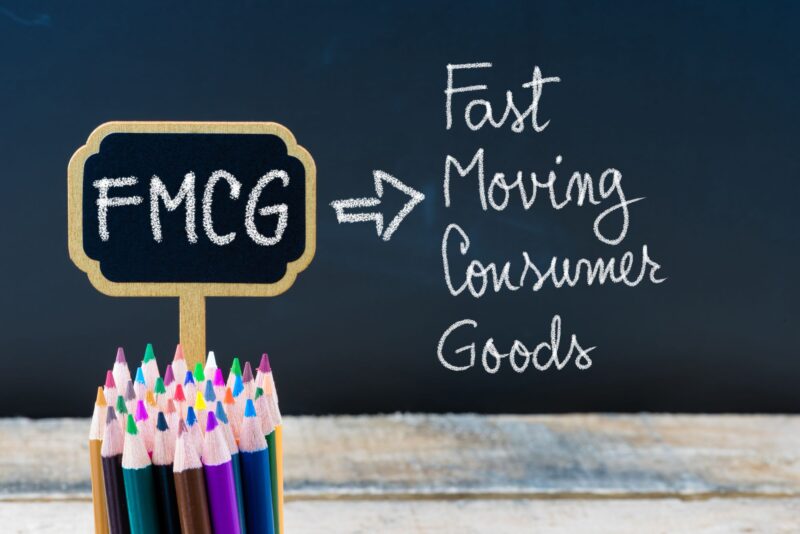FMCG Full Form: Fast-Moving Consumer Goods (FMCG) refer to products that are quickly sold and consumed by the general public. When devising a marketing strategy for FMCG, several critical factors must be considered to ensure success.
FMCG Full Form: Fast-Moving Consumer Goods
Types of FMCG Products | FMCG Full Form
- Cigarettes: While tobacco products like cigarettes are not classified as FMCG due to their limited shelf life and adverse health effects, beverages fall under this category.
- Beverages: FMCG items such as beverages are consumed rapidly and have a short shelf life. However, candies and sweets, although consumed widely, do not typically fall under the FMCG classification.
Understanding FMCG | FMCG Full Form
FMCG, or Fast-Moving Consumer Goods, are products with a short lifespan that are swiftly replaced or sold within days, weeks, or months. These goods, also known as Consumer Packaged Goods (CPG), do not endure for long periods like other CPG items. For instance, dietary supplements, though consumed daily, do not fall under FMCG as they are not sold based on consumption dates.
Tailoring Marketing Strategies for FMCG
Marketing strategies for FMCG differ significantly from those of other product categories due to the rapid turnover and market sensitivity of these goods. FMCG companies focus on marketing strategies, communications, and value creation to capitalize on market trends and consumer behavior. Utilizing the internet and social media platforms, FMCG brands disseminate information and engage with consumers effectively.
Leveraging Social Media in FMCG Digital Marketing
Social media platforms play a pivotal role in FMCG digital marketing strategies. Given the perishable nature of FMCG products and short consumption patterns, digital marketing, particularly through social media, offers direct visibility and trackability. FMCG companies conduct market research to tailor their digital marketing approaches and utilize social media for product promotion and direct sales.
Utilizing CRM, SEO, and SEM in FMCG
Customer Relationship Management (CRM) is crucial for FMCG companies to foster brand loyalty and drive repeat purchases. Additionally, search engine optimization (SEO) and search engine marketing (SEM) are employed to enhance brand visibility and promotional activities across digital platforms.
Importance of Product Positioning and Branding
Product positioning and branding are vital in FMCG marketing strategies. By aligning products with customer budgets and preferences, FMCG companies can target the right audience and generate demand. Factors such as quality, packaging innovation, and competitive pricing contribute to driving consumer interest and demand for FMCG products.
Conclusion | FMCG Full Form
In conclusion FMCG Full Form, FMCG marketing strategies wield significant influence over consumer behavior. Leveraging various tactics such as social media engagement, CRM, and effective branding, FMCG companies can establish themselves as industry leaders and capitalize on market opportunities. As advertising and media continue to evolve, FMCG firms stand poised to maintain their dominance in the consumer goods market.

